Search Results for Tag: Arctic
Greenpeace Save the Arctic in Doha
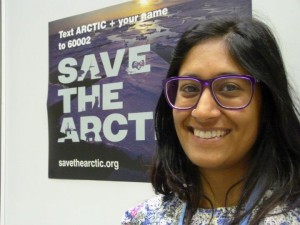 I’ve just been reading a blog by my colleague Anne Allmeling, who’s currently at the conference in Doha. She’s working on a story about ngos at the conference, which I hope we’ll be able to read tomorrow.
I’ve just been reading a blog by my colleague Anne Allmeling, who’s currently at the conference in Doha. She’s working on a story about ngos at the conference, which I hope we’ll be able to read tomorrow.
Amongst the activists braving the Arctic chill of the air-conditioned conference centre, Anne came across Swati Jangle from Greenpeace’s Save the Arctic campaign.
Ice blog regulars, DW fans and Living Planet listeners in particular may remember I visited one of their events in Bonn earlier in the year. It’s a very active campaign. Think global act local in practice here.They are campaigning to stop oil drilling and industrial fishing in the Arctic and are aiming to collect 3 million signatures and are currently at 2,217,626. Long way from Doha to the Arctic? It is in fact a very small world.
My friend asked me on the phone last night how our climate conference coverage was going. I was not surprised – but somehow disappointed – when she said “from what I hear in the media, it’s a waste of time anyway”. More power to all the volunteers from organisations all round the world who brave the crowds and bureaucracies of these mega-events and the pessimism that so easily takes hold in a lot of mass media to keep drawing attention to what we CAN do.
Warming permafrost on the Doha agenda
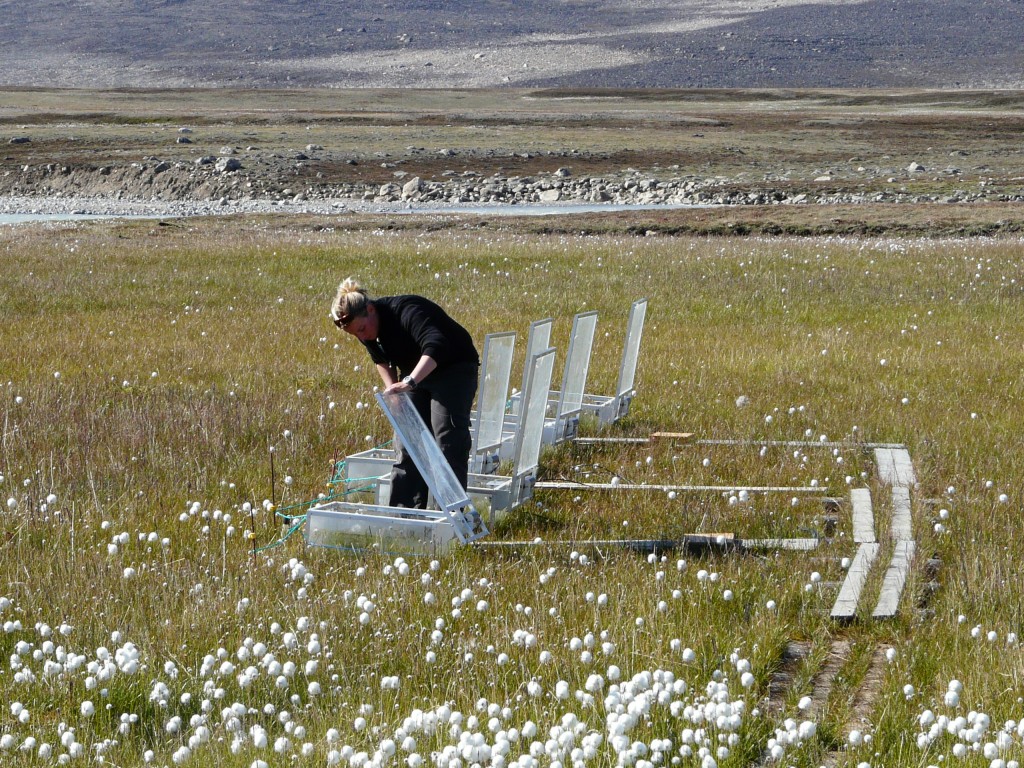
Scientists at measuring stations like the one I visted at Zackenberg, Greenland, measure the amount of greenhouse gases emitted by melting permafrost.
I was glad to see UNEP making sure the melting permafrost issue gets some wider public attention by launching its first report on the status of the world’s permafrost regions in Doha while the international climate talks are in full swing. Climate change is having a major impact on the permanently frozen soil in the Arctic, Siberia and high mountain regions. In the UNEP study, an international team of experts explain what is happening and what potential risks this thaw has for countries with permafrost.
![]() read more
read more
Climate talks too slow for Antarctic sea snails

The pteropod, (marine snail) Limacina hilicina antarctica, Photo: Nina Bednarsek
While the climate negotiations continue at a snail’s pace in Doha, marine snails or pteropods in the Antarctic are losing their shells because of ocean acidification. Researchers from the British Antarctic Survey (BAS) and partners have published the first evidence of ocean acidification affecting live marine creatures in the Southern Ocean. Ocean acidification is caused by the uptake of carbon dioxide from the atmosphere emitted as a result of fossil fuel burning.
![]() read more
read more
Ice in Doha?
If you search the internet for ice and Doha, you’ll find out where you can buy ice in the capital of Qatar and where you can go ice-skating. Yes, even in the middle of this desert region you can indulge in a game of ice-hockey. The energy needed to chill the ice comes from burning fossil fuels, of which the country has plenty.The ice that interests the ice blogger, the ice of the Arctic, the Antarctic and the world’s glaciers is unfortunately suffering badly from those same CO2 emissions. Interesting food for thought, as this year’s UN climate conference kicks off in Doha. More on that from my colleague Andrea Rönsberg.
Qatar currently ranks number one or number three on the list of the world’s top per-capita emitters of greenhouse gases, depending on which figures you take. The country could do wonders for its environmental image by agreeing to some firm emissions reductions targets during the negotiations. Of course in absolute terms, it’s China and the USA that have to take action to reduce their emissions soon if we are to get anywhere near keeping to the two degree target. The latest studies by UNEP and the World Bank tell us quite clearly we are heading for three, four or more degrees, unless the major emitters do something soon.
This year saw the Arctic sea ice declining to a record low. The Greenland ice sheet is melting faster than expected. Climate change is also affecting the ice of the Antarctic. What happens in the Gulf city of Doha is of key importance to the future of our ice – which, in turn, helps keep the planet cool. The ice blog will be following developments in Qatar with great interest over the next two weeks. Watch this space.
Oil from the Arctic: to drill or not to drill…
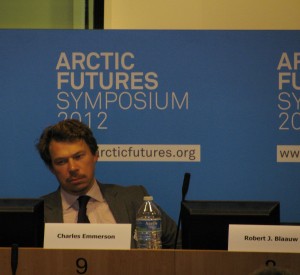
Charles Emmerson listening to the presentation by Robert J. Blaauw, senior Arctic Adviser with Shell.
Is not such an easy question to answer, Charles Emmerson from the British think-tank Chatham House told the Arctic Futures conference hosted by the International Polar Foundation and the EU committee of the regions in Brussels. In a session on the future of energy resources in the Arctic, he said it depends on various factors, including geographical location, economic costs and geo-political aspects. Emmerson was co-author of a study Arctic Opening: Opportunity and Risk in the High North for Chatham House and Lloyds.
![]() read more
read more



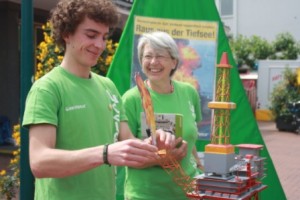

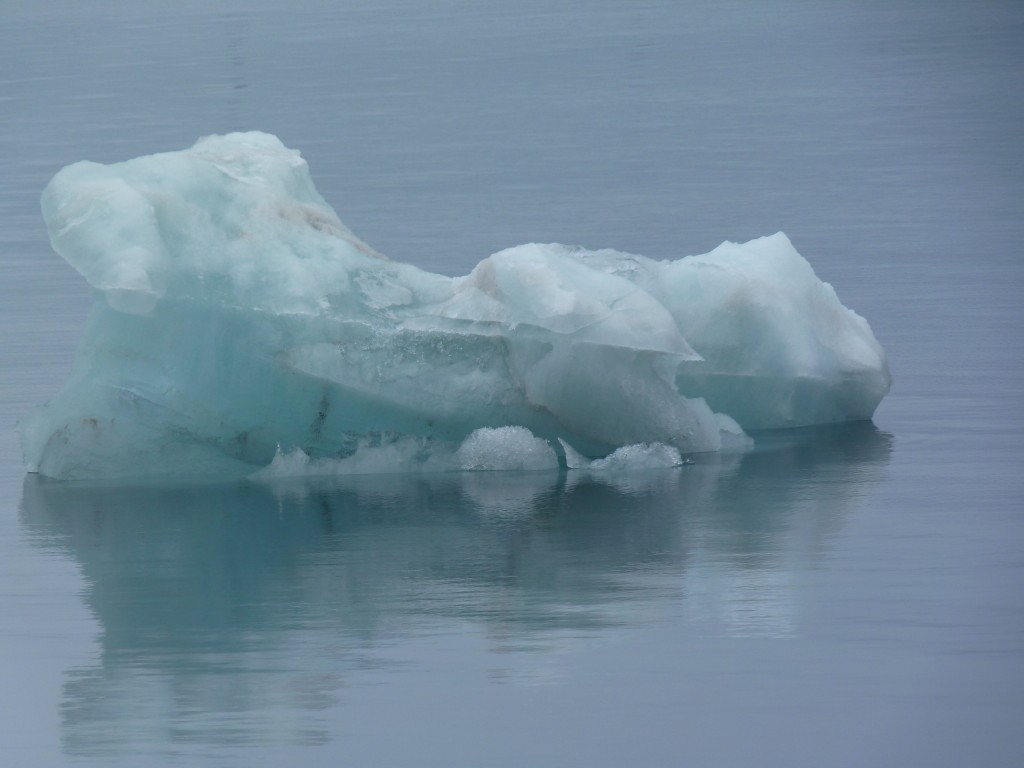
















Feedback